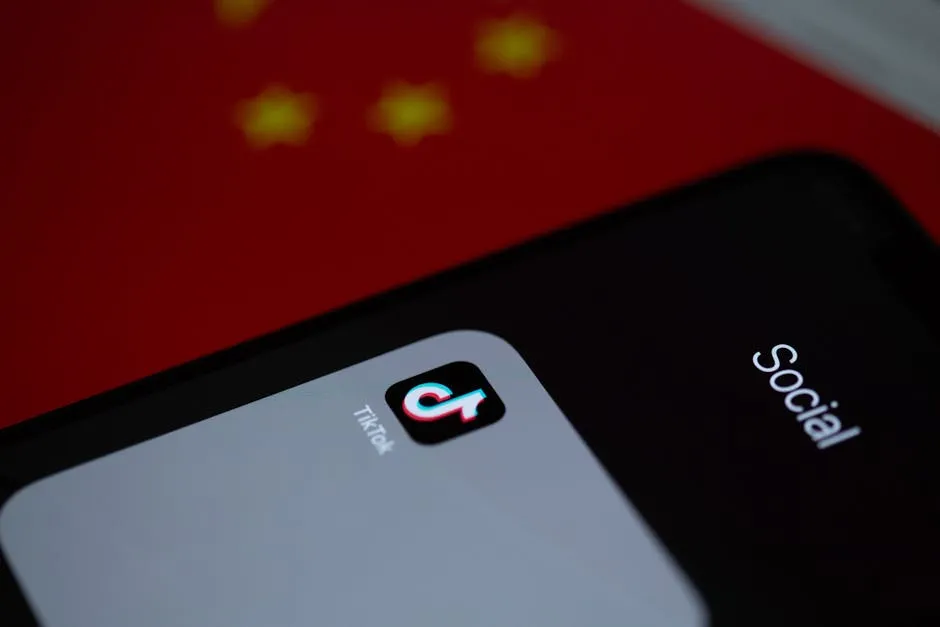
Why Do They Call It Oven?
Introduction
Ah, the internet! A place where humor thrives, and absurdity reigns supreme. Enter the meme: “Why do they call it oven when you of in the cold food of out hot eat the food?” Yes, that’s a mouthful. It’s like a riddle crafted by someone who just woke up from a nap and forgot how to speak. This ridiculous phrase is a classic example of internet humor that leaves us scratching our heads and laughing at the same time.
The origin of this legendary phrase dates back to August 31, 2013, when Twitter user YashichiDSF unleashed this gem into the wild. The phrase quickly gained traction, captivating users with its nonsensical charm. Who knew that a simple question about an oven could turn into a viral sensation? Soon enough, it made its way into various corners of social media, particularly when paired with a hilariously edited Garfield comic strip featuring Jon Arbuckle. That’s right! Even a lasagna-loving cat couldn’t resist the allure of this meme.
With its rise in popularity, the phrase has become synonymous with a specific brand of internet humor. It’s a quintessential example of how the internet can take something mundane, like kitchen appliances, and transform it into a source of endless amusement. Memes like this highlight the quirks of language and how we playfully manipulate words to create humor.

If you’re interested in exploring the world of Garfield, why not dive into the hilarious antics of our favorite lasagna-loving feline? Check out Garfield Complete Works: 1978-1981. It’s a comprehensive collection that will have you laughing out loud as you follow Garfield’s antics!
As the phrase spread like wildfire across platforms such as Reddit, Tumblr, and Twitter, it sparked countless variations and imitations, each more absurd than the last. This meme isn’t just a funny phrase; it’s an exploration into the quirky world of communication and how we find joy in the ridiculousness of language. So, grab a snack (preferably something out of an oven), and let’s dive deeper into this linguistic conundrum that has captured the hearts of internet users everywhere!
Summary
In this article, we’ll take a closer look at the absurdity behind the phrase “Why do they call it oven when you of in the cold food of out hot eat the food?” This nonsensical construction raises eyebrows while simultaneously cracking us up. The meme’s quirky wording has sparked laughter and confusion, making it a perfect topic for exploration.
We’ll also uncover its roots, tracing back to its connection with the beloved Garfield comic strip, which helped cement its place in pop culture. This leads us to an intriguing discussion about how such memes reflect our societal patterns in language and communication.
Finally, we’ll touch on the broader implications of memes in internet culture, showcasing how they serve as reflections of our collective humor and creativity. So, get ready to chuckle and ponder as we unravel the delightful chaos of this viral phrase!

The Origins of the Meme
The First Appearance
On August 31, 2013, a Twitter user named YashichiDSF posted a tweet that would unknowingly ignite the internet. The tweet read, “why do they call it oven when you of in the cold food of out hot eat the food?” This peculiar arrangement of words instantly captured attention.
Why did this specific phrasing resonate? Well, it’s a classic case of linguistic chaos. It’s as if someone tried to solve a riddle while juggling their thoughts and forgot the answer halfway through. The absurdity lies in the misuse of common phrases, leading to an eye-roll-worthy confusion. The phrase plays with our expectations of language, making it both amusing and perplexing.
The odd mix of “of in” and “of out” creates a sense of disarray that tickles the funny bone. People couldn’t help but share it, leading to a delightful spiral of confusion and laughter. The tweet became a curiosity, prompting many to question what in the world could have led to such a nonsensical construction. This initial spark set the stage for its rapid spread across social media.

The Spread of the Meme
After YashichiDSF’s tweet, the meme took on a life of its own. It didn’t just stop at Twitter; it began to pop up everywhere, showcasing the incredible nature of internet virality. On September 5, 2018, the phrase made a brief appearance on Reddit’s /r/askreddit. While it didn’t gain much traction there, it was merely a warm-up for what was to come.
The real turning point happened on August 20, 2019, when Tumblr user ewaneneollav posted an edited comic strip of Garfield, featuring Jon Arbuckle asking the question. This image struck a chord, earning over 79,000 notes. Suddenly, the phrase was no longer just a tweet; it had transformed into a meme that resonated deeply with users.
As the meme spread, it adapted and evolved, with users creating their own variations. On March 20, 2020, Twitter user @blushbuns contributed a fake poster featuring the phrase alongside Garfield. This post garnered over 2,200 retweets and 5,900 likes, further solidifying its popularity. The humor was contagious, and people couldn’t help but join in on the fun.
Reddit also played a significant role in the meme’s life cycle. On December 20, 2019, the phrase appeared in /r/BrandNewSentence, gaining more than 1,800 points. This further showcased how the meme had transcended platforms, making its way into various corners of the internet.
The combination of absurdity and relatability made it a favorite among meme lovers. By 2021, variations continued to circulate, including one by Redditor ToastyGhost37 in the /r/VShojo community, which racked up over 550 points.
Statistics like these illustrate the meme’s enduring appeal. Its nonsensical nature allowed for creativity and humor to flourish, making it a staple of internet culture. The combination of a quirky phrase, a beloved comic character, and the internet’s penchant for sharing absurdity ensured that the phrase would not fade into obscurity. Instead, it became a cherished part of online humor, reminding us all of the delightful chaos that language can create.
Analysis of the Phrase
Linguistic Breakdown
Let’s break down this quirky phrase, shall we? The phrase, “Why do they call it oven when you of in the cold food of out hot eat the food?” is a linguistic puzzle that tickles the funny bone. Its construction is so absurd that it sounds more like a riddle from a toddler than a serious inquiry about kitchen appliances.
First, let’s look at the syntax. The sentence structure is jumbled, creating a delightful confusion. Phrases like “of in” and “of out” are not just grammatically incorrect; they’re phrasal verb impostors. Instead of making sense, they lead the listener on a wild goose chase, culminating in laughter.
The phrase “of in” could easily be replaced with “put in.” Imagine someone earnestly attempting to discuss how to use an oven but instead concocts this beautiful mess of words. You can almost hear the gears creaking in their mind as they try to reconcile their thoughts with proper grammar.
Now, let’s address the grammatical faux pas. The use of “of out” as a part of the phrase might suggest a covert operation that involves pulling food from an oven. It’s as if the speaker is suggesting a secret code that requires an interpreter fluent in gibberish. This playful misuse of language, while nonsensical, creates an unintended comedic effect.

The Humor Behind the Absurdity
Why do we find this phrase so funny? It all boils down to the absurdity of language. When we hear something that defies our expectations, it often triggers laughter. This meme embodies that principle beautifully.
Absurdity in language can create a delightful disconnect. Similar memes, such as “Why is it called a building if it’s already built?” showcase our innate curiosity and confusion about everyday terms. These linguistic jokes rely on twisting expectations, leading to a humorous punchline that tickles the intellect.
Cultural implications also come into play here. Our language is filled with idioms and phrases that can easily confuse even the most seasoned speakers. The absurdity of the phrase reflects a shared understanding of how language can sometimes fail us. It’s a reminder that communication isn’t always straightforward.
Furthermore, let’s not forget the role of memes in society. They often serve as social commentary on how we interact with language. The “oven” meme taps into that phenomenon by poking fun at our everyday experiences. It captures the essence of a collective experience: we’ve all stumbled over our words or created a humorous misunderstanding.
In conclusion, the humor behind “Why do they call it oven when you of in the cold food of out hot eat the food?” lies in its absurdity and the playful manipulation of language. It’s a beautiful mess that invites laughter, stimulates curiosity, and reflects the quirks of human communication. So, next time someone drops this gem, remember: it’s not just a phrase; it’s a delightful peek into the whimsical world of language!
Pop Culture Connections
The Garfield Connection
When it comes to memes, few characters have left as big a mark as Garfield. The lasagna-loving cat has become a cultural icon for many reasons. One of those reasons is his unexpected connection to the meme: “Why do they call it oven when you of in the cold food of out hot eat the food?”
This particular phrase gained traction after a clever Tumblr user edited a classic Garfield strip. In this comic, Jon Arbuckle, Garfield’s owner, is shown contemplating the absurdity of the phrase. It’s a perfect fit! The comic’s humor matches the ridiculousness of the line, making it all the more shareable.
Garfield resonates with audiences for a simple reason: he embodies the humor of everyday life. His laid-back, cynical personality mirrors the thoughts of many. Who hasn’t felt like questioning the logic of kitchen appliances while lounging around? The meme taps into that relatable feeling. Plus, who doesn’t love a good lasagna joke?

Looking to get a taste of Garfield’s humor? Check out Garfield: The 50th Anniversary Collection. It’s packed with hilarity and nostalgia that will brighten your day!
The Garfield comic strip featuring this meme has garnered thousands of notes on Tumblr. This popularity showcases how well the meme is received. It highlights how even a simple question about a kitchen appliance can evoke laughter, especially when paired with a beloved character.
Memes and Their Role in Society
Memes are more than just funny images; they’re a reflection of our society. In today’s digital culture, memes serve as a unique form of communication. They can encapsulate complex ideas in a single image or phrase, making them easily shareable and relatable.
For instance, the “Why do they call it oven” meme isn’t just a silly phrase. It highlights our collective confusion about language and communication. This absurdity resonates with many, prompting shares and laughs on social media.
Memes often transcend their original context, morphing into cultural commentary. Take the “Distracted Boyfriend” meme, for example. It started as just a stock photo but became a way for people to express everything from relationship dynamics to political opinions.
Other examples include the “Woman Yelling at a Cat” meme. This one has evolved into a versatile template that humorously captures moments of frustration and misunderstanding. Such memes showcase our creativity and ability to find humor in everyday situations.

In conclusion, memes like the one associated with Garfield illustrate how humor can reflect societal behaviors. They help us navigate the complexities of modern communication by turning the ordinary into something extraordinary—and often hilarious. Memes remind us that while language can be confusing, laughter is universal.
Conclusion
As we wrap up our whimsical journey through the phrase “Why do they call it oven when you of in the cold food of out hot eat the food?”, let’s take a moment to appreciate its sheer absurdity. This delightful linguistic puzzle serves not just as a source of laughter but also as a reflection of our quirky relationship with language. The phrase is like a riddle crafted in the depths of a sleepy brain, leaving us scratching our heads while giggling uncontrollably.
The cultural significance of this phrase cannot be overlooked. It has become a staple of internet humor, illustrating how we find joy in the ridiculous aspects of communication. In a world where language can often feel rigid, this playful twist on words encourages us to let loose and embrace the silliness. After all, who hasn’t felt tongue-tied or confused by the nuances of our own language?

This meme is more than just a funny phrase; it represents the creative spirit of internet culture. It embodies a collective experience where we can all share a chuckle over our shared misunderstandings and miscommunications. It reminds us that humor can thrive in the most unexpected places, turning the mundane—like kitchen appliances—into sources of delight.
Speaking of kitchen appliances, if you’re looking to elevate your cooking game, consider the Instant Pot Duo 7-in-1 Electric Pressure Cooker. It’s a game-changer for quick and delicious meals!
So, as you continue scrolling through your feeds, take a moment to appreciate the playful side of language. Embrace the absurdity, and don’t be afraid to share your own thoughts or favorite memes in the comments! What other linguistic gems have made you laugh? Let’s keep the conversation going and revel in the delightful chaos that language can bring into our lives.
FAQs
What does the phrase “Why do they call it oven when you of in the cold food of out hot eat the food?” mean?
This phrase is a humorous meme that plays with language. It questions why we use the word “oven” in such an absurd way. Essentially, it highlights a misunderstanding of common phrases. The speaker jumbles words like “of in” and “of out,” creating a nonsensical construction that leaves listeners chuckling. It’s a clever example of how language can be twisted for comedic effect.
Why is this meme so popular?
The popularity of this meme stems from its absurdity and the joy it brings. The phrase captures a moment of confusion that many can relate to, making it instantly shareable. Its association with Garfield, a beloved character, also boosts its appeal. Memes thrive on relatability, and this one encapsulates the humor of language mishaps, resonating with a wide audience and inviting laughter.
Are there other similar memes?
Absolutely! There are countless memes that play with language and meaning. For example, “Why is it called a building if it’s already built?” showcases our confusion about language in a similarly humorous way. The internet is filled with linguistic jokes, such as “Woman Yelling at a Cat” and “Distracted Boyfriend” memes, which turn everyday situations into comedic gold. These memes remind us that playful language can create laughter and connect us all.
Please let us know what you think about our content by leaving a comment down below!
Thank you for reading till here 🙂
Effective communication is essential in understanding the humor and absurdity of phrases like this. why does effective communication matter in overcoming glossophobia
And if you’re looking to spice up your kitchen, consider grabbing an OXO Good Grips Silicone Baking Mat for easy clean-up while you create culinary masterpieces!
All images from Pexels




